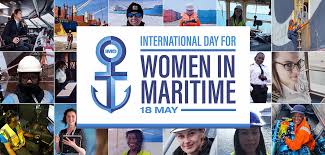Chairman, Board of Trustees of the Women in Maritime and Energy (WIME) Awards, Dr. Mrs. Chizoba C. Anyika, has called on governments, investors, regulators, and maritime stakeholders to adopt a progressive and inclusive approach toward leadership, innovation, and investment in women. She made this passionate appeal during her goodwill address at the 2025 Women in Maritime and Shipping Conference held recently under the theme: “Charting New Waters: Women Steering Progress in Maritime and Shipping.”
In her speech, Dr. Anyika emphasised that Nigerian women are no longer spectators in the maritime sector, but active players and innovators who are designing ships, managing ports, and breaking long-standing gender barriers in the shipping industry.
“Today, we are witnessing Nigerian women making waves in the maritime and shipping world—not by chance but by competence, courage, and consistency,” she stated. “For centuries, the narrative of maritime has been dominated by men, but women have always been part of this story. The question is no longer whether women can steer progress, but whether the maritime sector is ready to be steered toward inclusive and sustainable progress.”
Dr. Anyika used the platform to spotlight the persistent gender gap in the maritime workforce. She revealed that women account for only 2% of the global seafaring population, and less than 1% occupy executive roles in shipping companies. She noted that this gender imbalance is not due to a lack of capacity but a lack of opportunity, visibility, and structured pathways for women to thrive in the industry.
She advocated for deliberate efforts to revive maritime career visibility among young girls through school curricula, scholarships, mentorship, vocational training, and university-industry partnerships. According to her, introducing maritime knowledge at the grassroots will spark interest and help raise the next generation of female seafarers, naval architects, marine engineers, and logistics experts.
“We need to design gender-sensitive maritime training colleges and implement port safety protocols that consider the specific needs of women. The current systems were designed without women in mind,” she said, citing recent findings by the International Maritime Lecturers Association (IMLA), which identified a critical shortage of female instructors, naval architects, engineers, and port executives.
Dr. Anyika also announced the official rollout of the Women in Maritime and Energy Awards Initiative, an effort aimed at giving visibility to women who have distinguished themselves in maritime and energy sectors. She said the initiative will amplify female role models, document legacies, and most importantly, give women renewed hope that their efforts are seen and appreciated.
“The birth of the Women in Maritime and Energy Awards is more than symbolic. It is a structural response to the historical underrepresentation of women. It sends a strong message that our sacrifices will not go unnoticed, and our legacies will not be erased,” she said.
The WIME Chair urged policymakers to be “audacious in policy, intentional in partnerships, and courageous in action,” stressing that meaningful change in the maritime sector requires deliberate inclusion, bold reforms, and long-term investment in female talent.
“As we chart new waters, let us not only imagine a future where women lead in maritime and energy—let us build it. Let us remove the barriers, fix the systems, and create safe, empowering, and inclusive spaces for women across the maritime value chain,” she concluded.
The 2025 conference attracted participation from senior maritime officials, industry regulators, international partners, port authorities, shipping companies, training institutions, and advocacy groups from across Africa and beyond.
